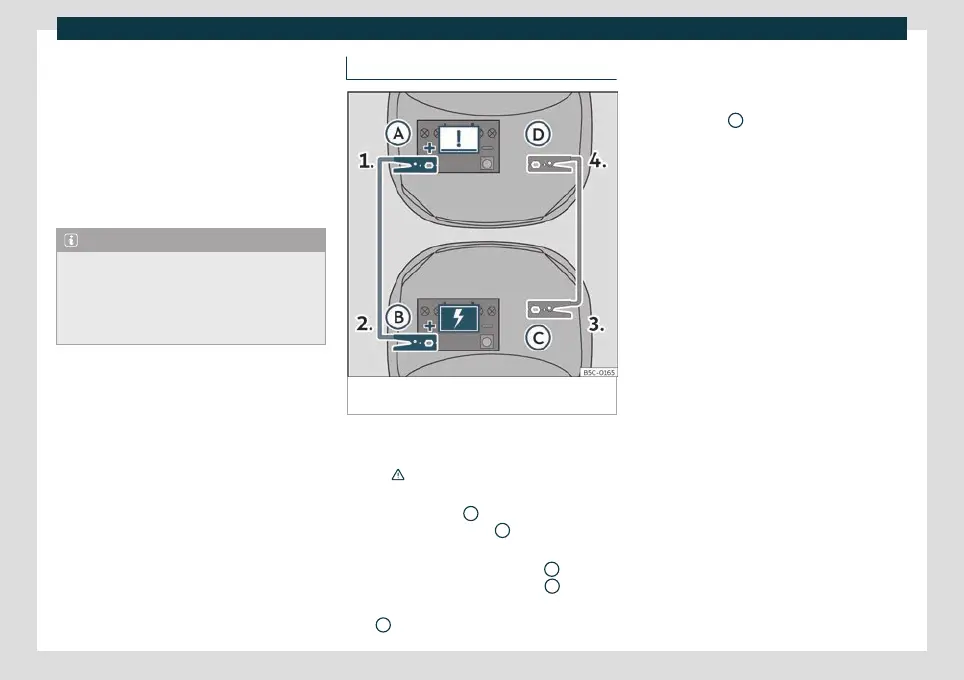Emergencies
If the engine fails to start because of a dis-
char
g
ed battery, the battery can be connec-
ted to the battery of another vehicle to start
the engine.
Jump leads must comply with standard DIN
72553 (see cable manufacturer's instruc-
tions). The wire cross section must be at
least 25 mm
2
for petrol engines and at least
35 mm
2
for diesel engines.
Note
●
The vehicles must not touch each other,
otherwise electricity could flow as soon as
the positive terminals are connected.
●
The discharged battery must be properly
connected to the on-board network.
Jump start: description
Fig. 42
Diagram of connections for vehicles with
Start-Stop system.
Jump lead terminal connections
S
wit
ch off the ignition of both vehicles
›››
.
C
onnect one end of the
red jump lead
to the positive
+
terminal of the vehicle
with the flat batt
ery
A
.
C
onnect the other end of the r
ed jump
lead to the positive terminal
+
in the
v
ehicle pr
oviding assistance
B
.
C
onnect one end of the
black jump lead
C
to a suitable ground terminal, to a
1.
2.
3.
4.
solid piece of metal in the engine block,
or t
o the engine block itself.
C
onnect the other end of the black
jump lead
D
to a solid metal compo-
nent bolt
ed t
o the engine block or to
the engine block itself of the vehicle
with the flat battery. Do not connect it
to a point near the battery.
Position the leads in such a way that
they cannot come into contact with any
moving parts in the engine compart-
ment.
Starting
Start the engine of the vehicle with the
boosting battery and let it run at idling
speed.
Start the engine of the vehicle with the
flat battery and wait for 2 or 3 minutes
until the engine is running.
Removing the jump leads
Before you remove the jump leads,
switch off the dipped beam headlights if
they are switched on.
Turn on the heater blower and heated
rear window in the vehicle with the flat
battery. This helps minimise voltage
peaks which are generated when the
leads are disconnected.
5.
6.
7.
8.
9.
10.
52

